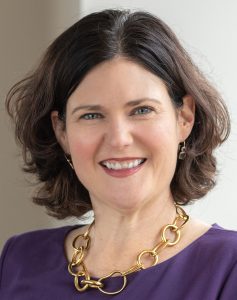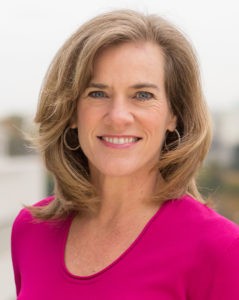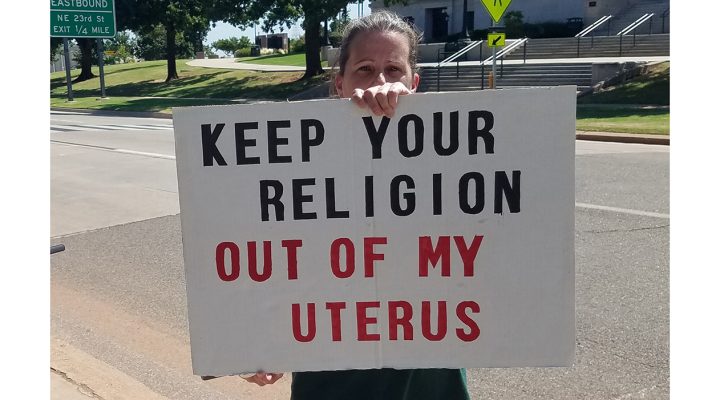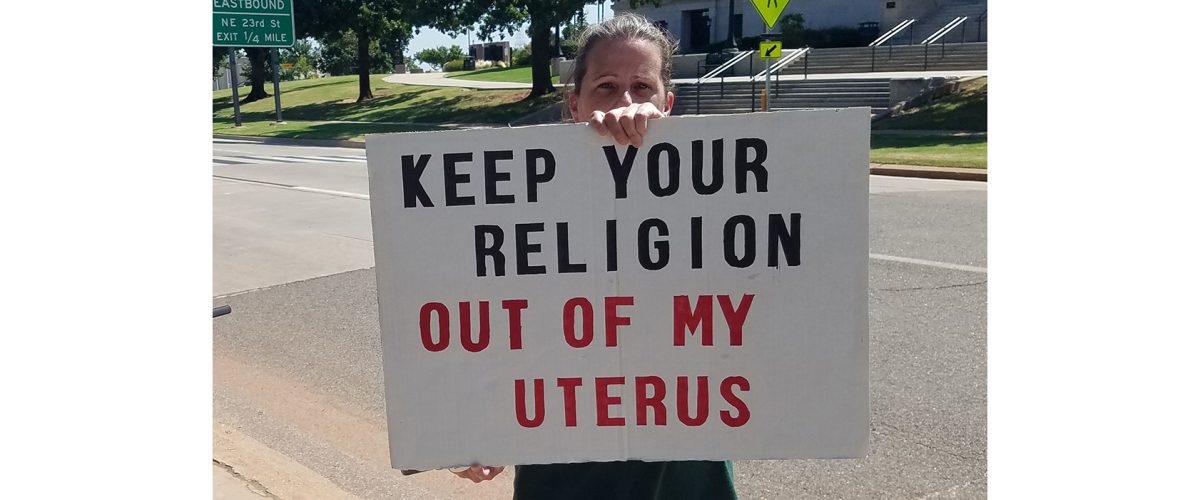Expect a proliferation of religious liberty cases for abortion access as the issue of reproductive rights moves to the states, predicts Holly Hollman, general counsel and associate executive director of Baptist Joint Committee for Religious Liberty.
While legal claims that abortion is protected under the free exercise clause of the U.S. Constitution are nothing new, “now they’ll have more urgency and I think there will be more attention given to arguments about abortion being compelled in certain circumstances (including) the religious motivations of women who are seeking abortions,” Hollman said in a recent episode of BJC’s “Respecting Religion” podcast.
But podcast co-host and BJC Executive Director Amanda Tyler added that such lawsuits may have little chance of success if they make it to the U.S. Supreme Court, which overturned Roe v. Wade in June.

Amanda Tyler

Holly Hollman
The same justices who voted to remove constitutional protections for abortion are unlikely to rule in favor of any challenge that goes against that decision, she said. “We don’t sense a real high likelihood of success.”
Even the Supreme Court’s deference to religious liberty cases involving wedding vendors and government-contracted social service providers likely would not mean success for faith-based abortion cases that come before it, Hollman said.
“I think the easiest way to think about it is that a court that just took this bold move of overturning Roe v. Wade after all these years, it’s probably not going to turn around and immediately find a religious liberty right to the same issue.”
With abortion bans percolating in numerous states and some of the strictest already enacted in Oklahoma and Texas, Hollman and Tyler acknowledged the difficulty of discussing anything to do with Dobbs v. Jackson Women’s Health Organization, the case that ended federal protections.
“The decision in Dobbs and the issues generally about access to abortion, to contraceptives and health care for women all have profound importance, including what many would say is a religious importance to women, especially, but also to others across the theological and political spectrum,” Hollman said.
Tyler said the fallout from the ruling has been deeply personal for many, including herself. “It has real lasting and potentially devastating impacts on people’s lives. For me, the realization that a right that I have had as a woman my entire life — I was born five years after Roe — whether I’ve needed to exercise that right or not, is gone with the decision by five non-elected justices. And that realization is devastating on its own for me.”
Hollman said she expects such concerns to bubble up into the national discourse. “There are going to be more conversations in general. People are going to be concerned about how the Dobbs decision affects their own medical care. And I think that we have to talk more about this among each other and with our lawmakers, with our families. I think that will lead to people exploring what role religion has.”
“There is not one religious position on abortion.”
None of this should be surprising given the variety of religious expressions and views on abortion that pervade the nation, Tyler said. “One thing we will see in a post-Roe world is more religious voices and more varied religious voices and positions on this contentious and deeply personal issue. There is not one religious position on abortion.”
People also are divided within religious traditions, Tyler said, referencing research showing 56% of Roman Catholics believe in legalized abortion despite their church’s leading role in opposing the practice.
“Within the Christian tradition there’s enormous diversity among Christians” on abortion, Tyler said. “Even among Protestant traditions, we have so many different denominations and perspectives on things. Even within the Baptist tradition we have enormous diversity.”
Denominational views also can change over time. Tyler noted the Southern Baptist Convention welcomed the 1973 ruling upholding Roe v. Wade and then by 2022 celebrated its demise.
“So, within 50 years the convention’s position … did a 180. It can be tempting to say Catholics believe ‘X,’ Southern Baptists believe ‘Y,’ Unitarians believe ‘Z.’ There’s more nuance to all these positions for each individual religious person,” she explained.
Hollman said she expects to see more legal cases in which those voices are arguing a religious liberty right to abortion.
Hollman said she expects to see more legal cases in which those voices are arguing a religious liberty right to abortion. Some will even say their faith compels them to seek the procedure.
“Religion is a strong motivation for people in making decisions about their reproductive life, about abortion access, and that makes sense given that these are decisions about the size of their family, how they could take care of their children,” she said. “Then others would argue that it’s so personal and private that it’s this realm of conscience that the state has no interest in involving itself in.”
Plaintiffs in those cases would have to prove that government policies, such as abortion bans, burden their free exercise of religion, Hollman said.
Another legal route for those seeking abortion access is to file claims that measures limiting abortion access violate the Constitution’s ban on government establishment of religion, Tyler said.
The approach would seek to prove policies were enacted by officials with religious motivations. But that will be an uphill battle since Kennedy v. Bremerton, a June case in which the Supreme Court cleared the way for government-sanctioned prayer and eliminated the Lemon Test in the process, she added.
“One of the claims of the Lemon test was that a law would not pass constitutional muster if it did not have a secular purpose. We don’t have that test anymore, so then the question is how would these laws be evaluated?’”
Hollman agreed that those filing religious liberty cases for abortion access must take the new reality of government-endorsed religion into account.
“There is this assumption that the government doesn’t do that under the Establishment Clause. But as you know, those standards are up in the air now. We’re in the middle of a transition on what the standards are for ‘no establishment’ under the Constitution.”
Related articles:
The Supreme Court’s politicized decision on abortion will do nothing to help churches thrive | Opinion by Mark Wingfield


